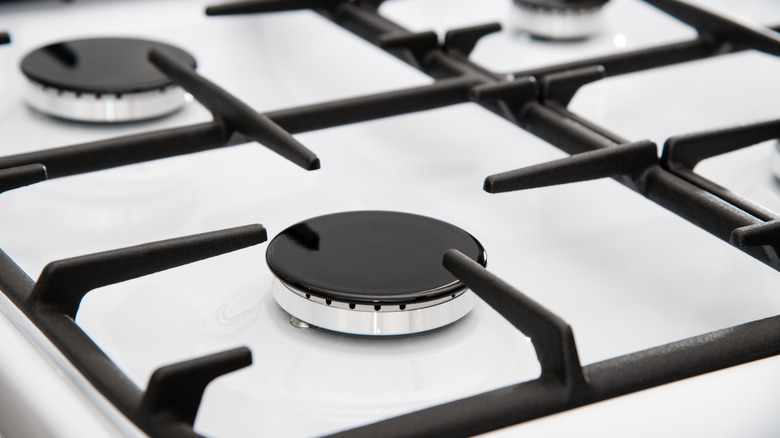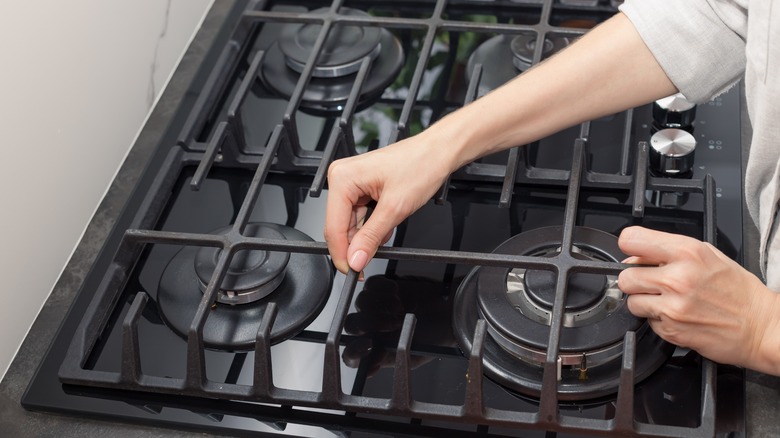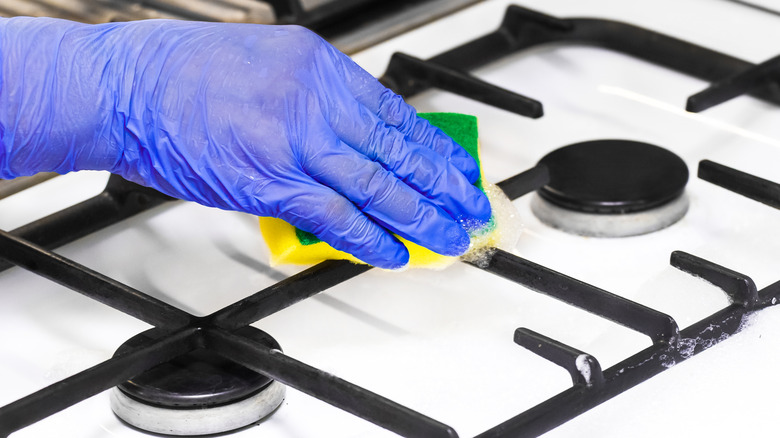Can You Put Stove Grates In The Dishwasher?
Dishwashers are by far one of the most convenient home appliances. Cleaning up dinner has never been easier than rinsing a dish and letting a machine do the hard work while you relax after a long day. You may remember spending hours cleaning dishes as a kid — fulfilling your daily chores — and nothing felt better than the day your family welcomed a dishwasher into the home. According to Brightly, dishwashers are energy- and water efficient. Unfortunately, not all dishes can go into the dishwasher due to the machine's high heat and detergent use.
Some items you should never wash in the appliance include knives, wooden products, delicate glassware, and cast iron. Even though it is an appealing choice to leave these inconvenient dishes to our dishwashers to take care of, more frequently than not, your stove grates are cast iron and should never be left to the dishwasher for cleaning, and here's why.
How dishwashers damage stove grates
If done frequently, washing your stove grates is a simple task that will only take 15 to 20 minutes, faster than the 1 to 4 hours a dishwasher uses to run a washing cycle. Martha Stewart explains that cast iron will quickly rust when washed in the dishwasher, as it cannot handle sitting in that much moisture for long. On the other hand, brass stove grates and ones covered in enamel or porcelain fare better in the dishwasher, but your typical grates and burner caps will last longer if avoided.
Handwashing these will also save your dishwasher from damage. Stove grates tend to be heavier, and depending on your dishwasher's capacity, the weight may harm the appliance. If you have mistakenly placed your stove grates in the dishwasher and are experiencing an issue with rust, not all hope is lost. Try soaking the grates in a vinegar and water solution and then scrubbing away at the tarnished area.
Hand washing stove grates
GE Appliances shows how to hand wash your stove grates. You'll want to start by submerging your grates in hot water and soap — the hotter the water, the better. After letting them soak for at least 10 and no more than 15 minutes, scrub away any remaining food build-up that persists. A cleaning powder may come in handy here to help with any crust and grease that won't budge. Once eliminated, rinse and dry the grates thoroughly to complete the process and avoid rust build-up. When experiencing stubborn, burned-on messes, GE Appliances recommends sealing the grates in a bag with 1⁄4 cup of ammonia for three hours or overnight.
It may also be tempting to throw the grates into your oven when letting it self-clean, but this is also ill-advised unless you can refer to the oven manual that the stove grates are safe in a self-clean cycle. Honestly, it is much more work to look for loops to washing your stove grates than simply taking the necessary time and steps to hand wash them. Cleaning your stove grates is worth your peace of mind, and you will surely have it if you wash them yourself.


